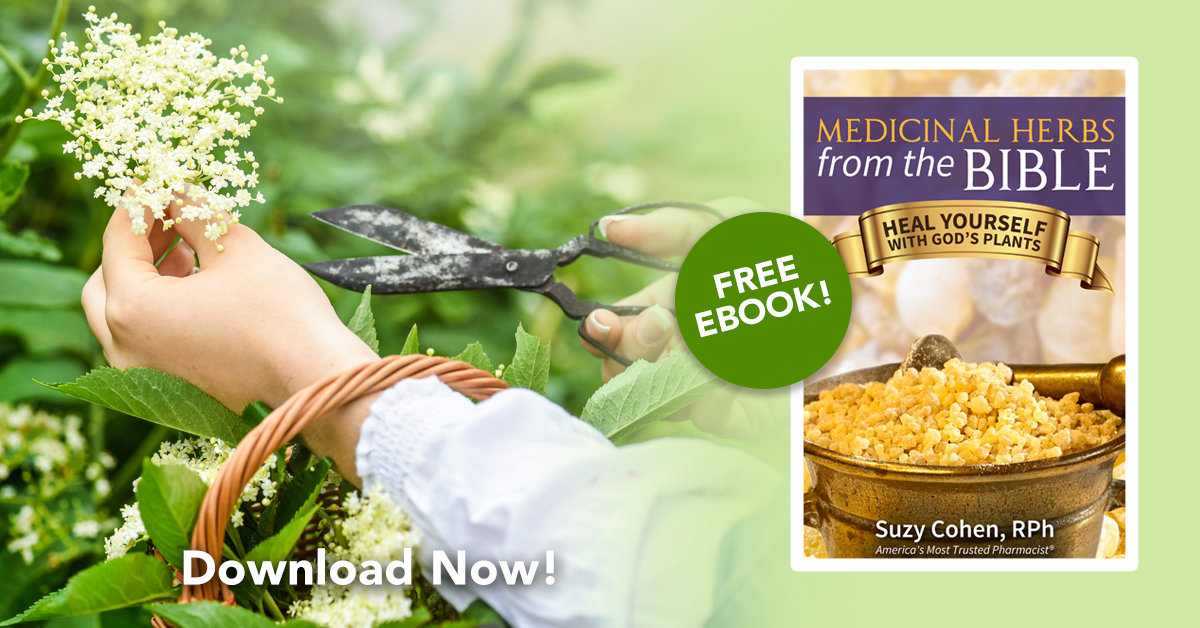Scutellaria baicalensis, which is available worldwide in a wide variety of supplements, tinctures, and teas. Another name of this herb is Baikal Skullcap.
Although you might not have heard of Skullcap before my article, this plant has grown on the Earth for eons, and it has dozens of well-documented beneficial actions in the body.* It contains multiple potent compounds, some of which exhibit potent antioxidant activity, and some of which help down-regulate the production of pro-inflammatory cytokines.* In fact, one of its most important benefits is its ability to lower IL-17, a very potent cytokine associated with psoriasis and rheumatoid arthritis.
The part of the Skullcap plant that has the most active medicinal constituents is its root, from which Skullcap extracts are made. Some Skullcap constituents aid in promoting sleep, which makes it even more awesome – because while it’s providing protective benefits while you sleep, at the same time it’s also helping the body maintain healthy immune function.*
As I often say, Mother Nature makes no mistakes. Before I share more information about this herb, I need to make one important distinction. There is also an herb called American Skullcap (Scutellaria lateriflora), which I am not discussing in this article. Today, I am discussing Scutellaria baicalensis. Although this plant is known by several common names, the most popular one is “Chinese Skullcap.”
Distinguishing between these two plants is important because some of you might be holding a dietary supplement in your hand and reading the label on it, and I want you to know which herb I’m talking about. Chinese Skullcap is not made in America – it’s grown and harvested properly in many different countries across Asia. Of course, both versions of Skullcap contain many beneficial bioactive constituents, and these components perform many positive but different roles in the body.* This is the case with adaptogenic herbs. They work on various pathways in the body.
You sometimes see this herb written in the literature, or sold online as “Baicalin” or “Baicalein” and that’s ok. Another extract from the Chinese Skullcap plant is Oroxylin A and it is also helpful in reducing IL-17 cytokines.
In 2019, Chinese Skullcap extracts were studied in rodents and test tubes, and the results of these studies showed it had probable benefits for helping to maintain respiratory health.* One of the root extracts, called “baicalin,” was extracted and evaluated, and the researchers concluded that it was particularly helpful in supporting healthy immune function.*
One reason herbal constituents appear to work in supporting immune function is because they have a wide spectrum of activity, and therefore they can have a wide range of beneficial impacts in the body.* In other words, plant-based herbals have worked for centuries because they are not singular in focus – they have a shotgun effect, versus a single-bullet effect. Chinese Skullcap is recognized for having this so-called wide spectrum effect in the body*
The various studies of Skullcap root extract have suggested it may support healthy cytokine production/levels (which in turn support healthy inflammatory cell responses).* As I mentioned a moment ago, it can effectively reduce IL-17 which is upregulated in many immune system disorders that are self-directed… autoimmune conditions. So controlling IL-17 with an herb can sometimes be excellent adjunctive therapy. Of course, if you have an autoimmune condition, or an infectious pathogen, please ask your doctor if this supplement is okay for you. I do not sell it.
The Skullcap plant is gorgeous, with purple-blue blooms, and it withstands very harsh climates. You can see it in the image above. It’s very hardy, because it’s native to Siberia, Russia, China, Korea, and Mongolia. For many hundreds of years, practitioners of the medicinal arts have used various parts of the Skullcap plant to heal people, often without fully understanding its chemistry. Thanks to modern science, we now know how to extract the primary biologically active constituents and study them in the laboratory and in clinical studies.
Although there are more than just the following, I would suggest looking up online just three of the important active constituents in Skullcap:
1. Baicalin
2. Wogonin
3. Baicalein
Chinese Skullcap has been traditionally utilized as medicine for centuries. In China, the preparation is called Huang-Qin, where it is used for gastrointestinal disorders, cardiovascular conditions, circulatory issues, liver protection, immune function, respiratory health, and even for its brain effects.* Skullcap is also a strong antioxidant.* There are even some reports that Skullcap can support hair vitality by stimulating blood flow to the scalp.* I’m not so sure about that effect, however, it’s worth honorable mention.*
Various herbal extracts that have a long history of safe and effective usage should be considered at this time – when having healthy immune function is at a premium.* I believe Chinese Skullcap is one of them.* Please know that nothing I have shared about Skullcap is 100-percent conclusive, and you should never delay seeking medical attention if you believe you are sick. I am just providing information to you with my article, not advising you. My purpose in writing this article is to give you some information that is empowering. So consume it at your own discretion.
Because we all need something positive to noodle!
I hope that I have shared some intriguing good news. I believe if an herbal extract has this long of a history, and some solid research to support it, then why not ask your health-care practitioner about it?
Other Benefits
Before thinking about its use for healthy immune function, many individuals look to Skullcap for sleep support.* Just look at the name – it’s like a nightcap for your skull! That’s why many people traditionally use Skullcap to support tranquil feelings and relaxation.* For this reason, it’s best taken after dinner, or before bedtime (for a full dose).
If you want to learn about some other herbs, you may be interested in these other articles I have written:
These Herbs Work Like Medicine
How to Make an Herbal Immune Tea
In Defense of Precious Elderberries
A few notes of caution...
If you take too much of an herb that works on the liver, it can hurt the liver. Too much of a good thing… as they say. So even though Skullcap is considered hepatoprotective, you must never take an excessive amount, nor take it if you have liver disease, without your physician supervising you.
Do not take or consume any natural medicine without your health-care practitioner knowing and advising you. Just because you read it here doesn’t mean it’s right for you. Also, there is not enough information to determine if this herb is safe for children. And Skullcap is not recommended for women who are pregnant, hoping to become pregnant, or nursing a baby.
Finally, as I mentioned at the beginning, there is a difference between American Skullcap and Chinese Skullcap. These are two different species with very different actions on the body. They are not interchangeable. The article I’ve written today and the research I have cited is only about Chinese Skullcap.
*These statements have not been evaluated by the Food and Drug Administration. These products are not intended to diagnose, treat, cure or prevent any disease.
CLICK LIKE to FOLLOW Suzy Cohen – Get Important Health Tips

Suzy Cohen, has been a licensed pharmacist for over 30 years and believes the best approach to chronic illness is a combination of natural medicine and conventional. She founded her own dietary supplement company specializing in custom-formulas, some of which have patents. With a special focus on functional medicine, thyroid health and drug nutrient depletion, Suzy is the author of several related books including Thyroid Healthy, Drug Muggers, Diabetes Without Drugs, and a nationally syndicated column.


